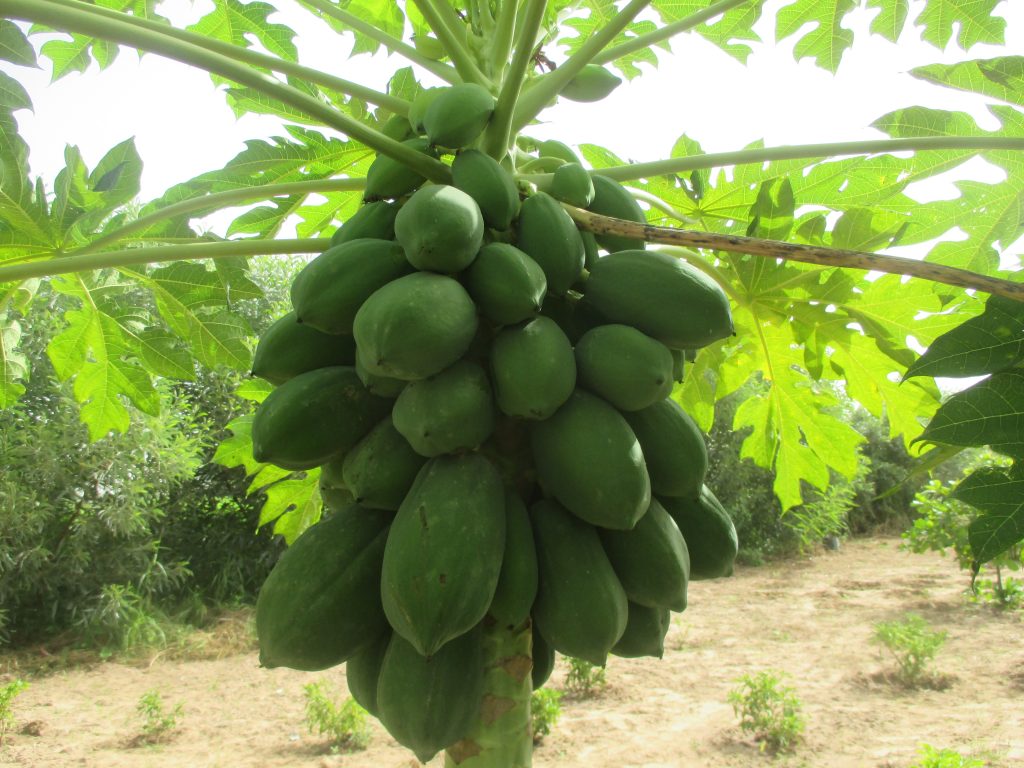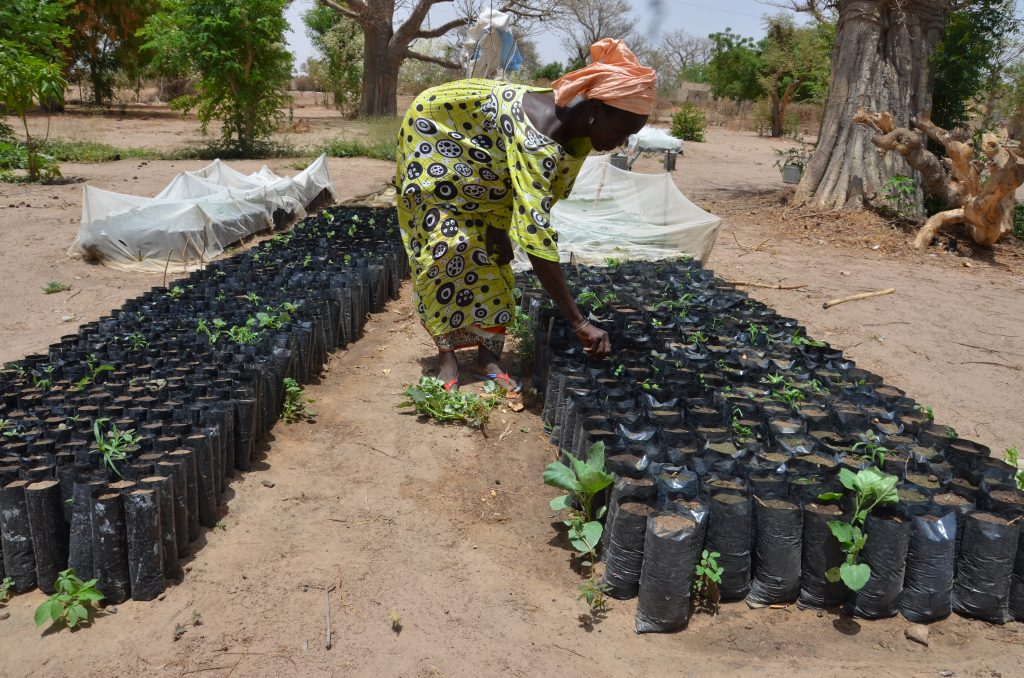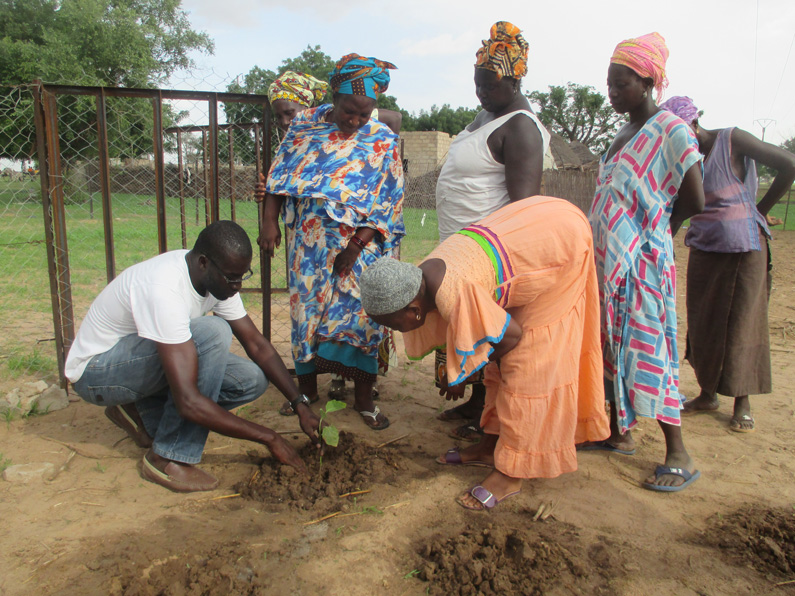“The best time to plant a tree is 20 years ago. The second best time is now.”
It’s getting stiflingly hot and humid this time of year in Senegal. You can smell dampness in the air as rain clouds swell far in the distance. Soon, the rains will make their way to the desert. Offering a short reprieve from the sweltering temperatures that scorch peoples’ crops and dry out their watering holes.
As the rains begin to fall, volunteers in CREATE!’s partner communities will begin planting the tree seedlings. They have been carefully raising these seedlings in the nurseries throughout the year. CREATE! field technicians facilitate the tree planting activities, advising community members on best practices for where to plant trees, what varieties to grow, and how to maintain them so they can put down strong roots before the next dry season begins in October.

Papaya trees are a local favorite in CREATE!’s partner villages, as they are particularly fast-growing and each tree produces over 100 fruit per year.
Senegal’s Variety of Trees
The trees they plant are surprisingly fast-growing and resilient in Senegal’s desert climate. Papaya trees grow 6-10 inches in their first year alone, and are ready to harvest just 6-9 months after planting. Each tree can bear up to 150 fruits per year.
Another variety that is commonly grown during the tree planting campaign is the thorny Acacia mellifera. Communities plant this tree along the border of each community’s garden site. The mellifera is known to grow particularly fast, forming a shrubby and nearly impenetrable living fence around the garden to protect it from pests such as cows, goats, donkeys, and rodents. It’s even said that snakes are unable to slither through!

Volunteers raise trees in little black “sachets” throughout the year, until they can be planted in the ground during the rainy season. The short, 3-month period of rain is just enough time for the trees to establish their roots and grow once they’re planted.
In addition to papayas and acacias, members also plant cashews, lemons, mangos, moringa, beechwood, and flame trees. This variety serves as an important source of food, medicine, shade, wind protection, and firewood.
As Senegal continues to experience rapid desertification and deforestation, tree planting campaigns at the village level have become increasingly urgent and important for peoples’ livelihoods in rural sub-Saharan Africa. Check out our latest video to learn more about deforestation in Senegal, and what you can do to help!
Ready to #PlantfortheFuture? Click here to donate and plant a tree!

